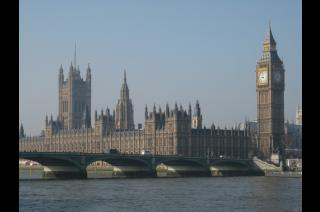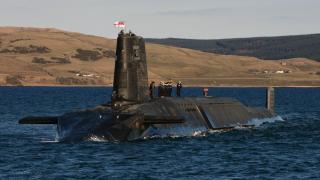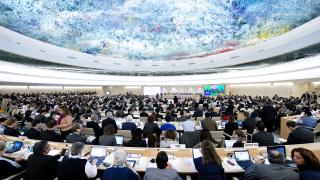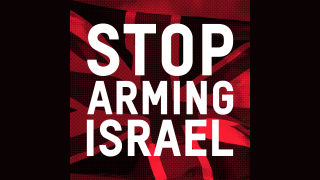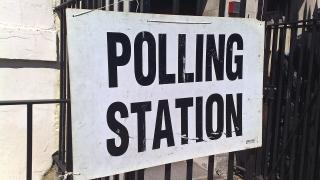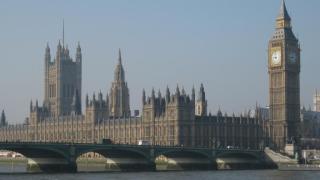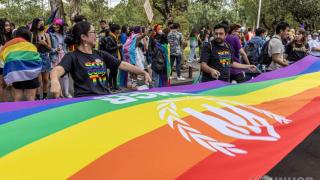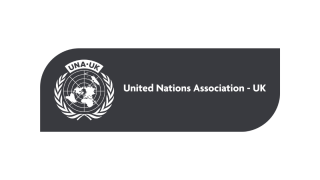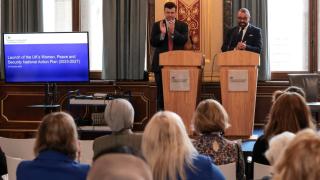UNA-UK's report, "Keeping Britain Global" makes the case that Britain needs to champion global values, and invest in the health of our international system and makes recommendations across five key areas where we believe the UK can make a useful contribution at a global level, and where we feel Britain’s willingness to take action will provide a fair and appropriate test of Britain’s support for the rules-based international order. This is what we have to say about:
Preventing atrocities
Recommendations
The UK should:
-
Develop a strategy for preventing atrocities which would detail precisely what measures and indicators would lead the R2P Focal Point to declare that there is an imminent risk of atrocity crimes occurring in any given country and what mechanisms and actions this would trigger.
-
Elevate the role of R2P Focal Point to ministerial level
-
Champion the doctrine of R2P across Government, using atrocity prevention as a ‘lens’ to analyse policy in all areas including within peacekeeping, arms export policy and immigration and asylum policy
In detail
There is no greater test of our international system than its record when it comes to preventing atrocities. Atrocities – genocide, war crimes, crimes against humanity, and ethnic cleansing – represent humanity at its worst: horrific crimes affect communities for decades.
The international community’s record on preventing atrocities is poor, but past failures have produced a set of tools to guide our response. These tools allow for the graded application of pressure and actions to prevent and discourage atrocity crimes before they occur, measures to mitigate harm as it is occurring and subsequent accountability processes to prevent recurrence and provide justice to survivors. They are collectively known as the “Responsibility to Protect (R2P)” – a principle endorsed by all UN member states at the World Summit in 2005.
In 2011 Brazil published a concept note called “responsibility while protecting” which suggested these tools must themselves meet nine tests for avoiding harm, including reiterating that R2P maintains that any military action would require a Security Council mandate.
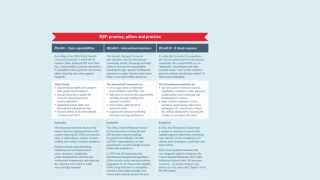
But consideration of military action should rarely be part of the discussion. R2P is primarily about prioritising civilian life in foreign policy and ensuring states live up to their obligations to protect the helpless victims of war.
The doctrine of R2P emerged from lobbying led by the global South: the African Union and the governments of Benin and Cameroon. But the UK can be proud of its role in supporting the adoption of the concept in 2005. Since then, the UK has continued to back the principle, for example, by appointing an R2P Focal Point within the Foreign and Commonwealth Office.
However, some experts and commentators have argued that the UK only champions R2P when it aligns with its strategic interests, and is not itself a strategic priority. The fact that the UK, unlike the US, has no clear policy on atrocity prevention, and that preventing atrocities does not receive more than a cursory mention in the UK’s strategic security documents reinforces this perception, as do allegations of selectivity around the non-application of the doctrine, for example, with respect to credible allegations of atrocity crimes by UK allies in Yemen.
As a permanent member of the UN Security Council, the UK has a special responsibility to address matters of international peace and security. Atrocity crimes are intrinsically unacceptable, striking a blow to our common humanity. But more than that, the fall-out from these crimes can threaten the security and stability of states, regions and the wider world.
The UK should therefore make preventing atrocities an explicit national security priority and adopt a consistent approach that adheres to international standards. Selectivity can be avoided by developing a strategy which would detail precisely what measures and indicators would lead the UK’s R2P Focal Point to declare that there is an imminent risk of atrocity crimes occurring in any given country and what mechanisms and actions that would trigger. Increasing the seniority of the UK’s R2P Focal Point to ministerial level could help give these issues prominence, and better enable the UK to implement the required actions.
R2P has perhaps been most successful when it comes to UN Peacekeeping, where the UN mission likely prevented a genocide in the Central African Republic and reduced the prevalence of atrocities in Mali and the Democratic Republic of Congo. The UK can build on such success by offering diplomatic and logistical support for the robust implementation of “protection of civilians” mandates within UN Peacekeeping contexts. The UK and should also push for the early deployment of missions and oppose their premature withdrawal.
R2P needs to be a cross government initiative. An atrocity prevention ‘lens’ should be applied to all government policy. If implemented properly, R2P goes beyond conflict prevention and looks at what makes target groups vulnerable and how they can be protected. A likely consequence would be to refuse arms export licences to countries where there is a risk of them being used to commit atrocity crimes; and to amend immigration and asylum policy to ensure that safe passageways for migration are provided for those fleeing atrocities.

